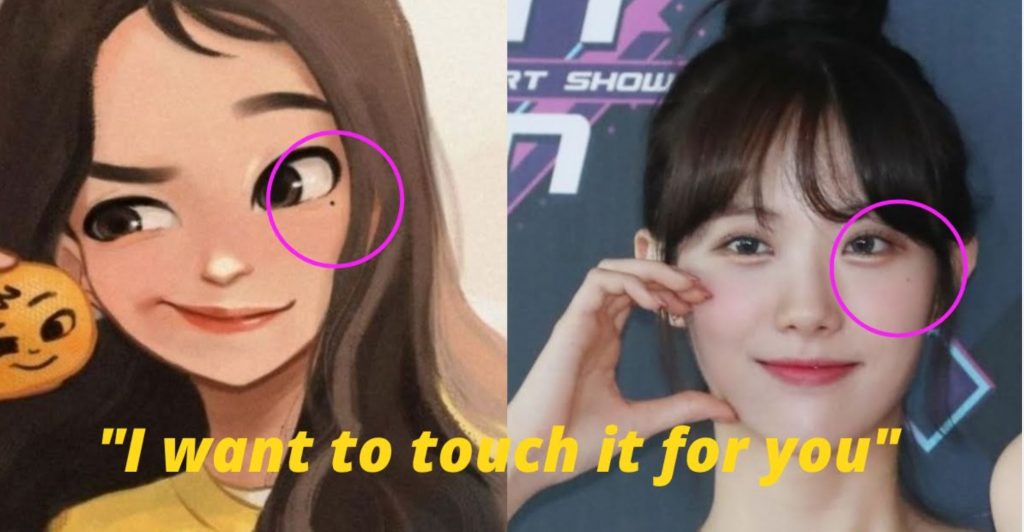
South Koreans Say Deepfake Porn Bad, Fan Fiction Good?
South Korea seems to be at the forefront of regulating future sex tech, and in particular, the problem of ‘deepfake porn’. This recent and much feared techology involves usually unwitting individuals – most often female celebrities – being turned into pornstars, through the use of deepfake algorithms to superimpose their face (increasingly realistically) on to that of an adult actress in a hardcore movie.
The problem of deep fakeporn seems to be of particular concern in South Korea, and it’s easy to see why. First of all, it has been claimed that a sizeable percentage (25%) of the global deep fake porn currently online involves South Korean ‘K-Pop’ celebs. Secondly, in the last few years, South Korea has been hit by a number of prominent scandals involving ‘upskirting’ (known locally as ‘molka’), with the videos then put online for financial gain. Several tragic cases have been reported of victims identified in these videos subsequently committing suicide out of shame. Most recently, the nation was rocked by a truly horrific case of ‘online sexual slavery‘ in which dozens of young women and girls were blackmailed into performing often degrading sexual acts online.
These scandals have occurred at the same time as the global phenomenon of the #MeToo movement, sweeping through South Korea, as elsewhere. With South Korea already being a relatively sexually conservative society (compared to Japan, or even China with its tolerance of sex dolls and robots), and yet one of the most high tech literate societies on Earth, then it all adds up to a recipe for some earnest debate over the direction in which sex tech is going. In particular, and quite understandably, deep fake porn has been portrayed as the most pressing menace, with reasonable fears it could lead to a new source of blackmail against female celebrities or other young South Korean women.
But what appears to have triggered the latest round of calls for harsher punishments for purveyors of deep fake porn (South Korea was already the first country to make its production a criminal offence), is the curious episode of a popular South Korean Facebook bot. Named ‘Lee Luda’, it quickly became one of the most popular bots used by young people in South Korea, who increasingly came to turn to it for the latest news and events happening in their local areas. However, netizens also quickly noted that the cute AI news bot – ostensibly representing a generic South Korean female university student – shared the same name as a K-Pop star…as well as looking suspiciously like her. Right down to boasting a pimple under the right eye.

This itself might not have enough to cause any controversy, but the problems started when the racy chat bot began to use sexually inappropriate language, as well as offensively racist terms too. The bot itself was allegedly ‘sexually harassed’ by users – something undoubtedly disturbing when considering its likeness to a real individual, whether that likeness was intentional or not.
The creator of the bot – who didn’t exactly do himself or his creation any favours by publicly predicting beforehand that the bot would be harassed – was forced by public outrage to withdraw Luda, at least temporarily.
So in the tech hot spot of South Korea, a racy AI bot has re-invigorated a debate on deep fake porn that had already seemingly been decided. A petition was started on the government’s e-portal, demanding stronger punishments for those creating or spreading deep fake porn, and quickly garnering the 200,000 e-signatures needed for the government to respond.
However, there has been something of a twist this time. Whether or not it was brought about through angry fans of deep fake porn, or whether it was simply young South Korean males complaining of ‘double standards’, but similar petitions also sprung up calling for the same laws and punishments for makers of ‘fan fiction’, and these too quickly gained a large number of supporters. Also known as ‘real life fiction (RLF)’, fan fiction refers to the popular genre of home made (fan written) stories that portray often explicit sexual fantasies involving living celebrities. This highly erotic or pornographic fan fiction is often referred to as ‘real life slash (RLS)’, or simply ‘slash fiction‘. This erotic version of fan fiction is extremely popular in South Korea.

Fan fiction, even of the most pornographic kind – which often involves underage K-pop stars as well as rape themes – had never been subjected to the same hysteria and outrage as deep fake porn, yet in both cases, the celebrities involved do not give their consent. Indeed, even after the petitions against fan fiction were launched in South Korea, some feminists and law makers in the country have dismissed them as a ‘misogynistic’ backlash against the condemnation of deep fake porn.
According to Areum Jeong, a feminist diversity scholar who holds positions at universities both in South Korea and Pittsburgh, USA, the petitions against fan fiction are an attempt by men to distract attention away from the deep fake porn scandals.
Jeong expressed concerns about the intent behind the petition, which many perceive as an attempt to distract attention from the crimes committed by certain men shaming the largely female-driven fan community.
“It seems that the people petitioning to ban [the fanfiction] are not really concerned about the issues surrounding [them], but are trying to divert attention from the secret [groups] that upload deepfakes and molka and argue that [fanfiction involving real people] is harmful and sexual exploitation,” she told the Post.”
At first glance, it might seem that there is manifestly a difference between the two kinds of things. Fan fiction is old school tech, dating back decades, whilst deep fake porn is new sex tech, and a new kind of danger. New sex tech is inherently more ‘real’, and hence more dangerous. This is clearly true to a large extent, and certainly the possibility of blackmailing is not present so much in fan ‘fiction’. Still, it could be argued that the difference remains only a matter of degree. The South Korean laws on deep fake porn criminalize not only the distribution of the content, but its creation – even intended for private use. Is there really a great moral difference between fans sharing, perhaps to thousands or millions of other fans, detailed sexual stories, including rape fantasies, of their celebrity crushes, with an individual making a deep fake porn video of his celebrity amour strictly for his own enjoyment?
Fan fiction is no longer the imaginative and creative outpouring of personal fantasy through pen and paper, to be shared with perhaps a small group of like-minded friends. The increasingly erotic and even obscene fiction is now part of the digitized sex world, uploaded to be viewed by and commented upon, perhaps added to, by perhaps millions. The technological line between fan fiction and deep fake porn is becoming ever more blurred – recently a fake and sexually explicit audio of a popular male rapper was uploaded to a South Korean fan fiction site.
Perhaps, as Areum Jeong herself claims, there is more underlying difference than simply tech that explains the difference between the two things? Deep Fake Porn is created and consumed mostly by males, and involves invariably female K-pop stars. Fan fiction, on the other hand, including or especially the pornographic Real Life Slash kind, is created and consumed usually by both bi and straight females, as well as gay males, and involves both male and female K-pop celebrities – often depicted in same sex relationships.

So is it the difference in demographics and not the tech that explains or justifies the contrast in South Korean attitudes? Even here, the true motives of the defenders and critics of each are hard to disentangle. Critics of Real Life Slash point to double standards. Deep fake porn is targetted because it is male driven and the celebs are female, while fan fiction is spared because the celebs are male, or when the celebs are female – the creators of the fiction are usually female themselves. Defenders of Real Life Slash, such as Areum Jeong, respond by claiming that critics are motivated by both misogyny and homophobia.
This all seems to be a more high tech version of a ‘debate’ sometimes seen online in the West – between men’s rights campaigners and feminists over the issue of porn and ‘female erotica’. In fact, ‘Fifty Shades Of Grey’, a book often held up as an example of female porn dressed up as ‘erotic lit’, was itself based upon a fan fiction story involving the characters of Twilight.
It seems that in South Korea, the 21st Century tsunami of sex tech and online identity politics is colliding head on. The result, it seems, will not only be even harsher sentences for deep fake porn consumers (they already faced up to five years in prison), but the potential for the same kind of legal retribution for fans of real life slash. Leading politicians, as well as some K-Pop stars, have joined the calls for fan fiction to be criminalized, and the petition calling for its ban has reached over 200,000 signatures – meaning that the government will be forced to respond.
More reading :
